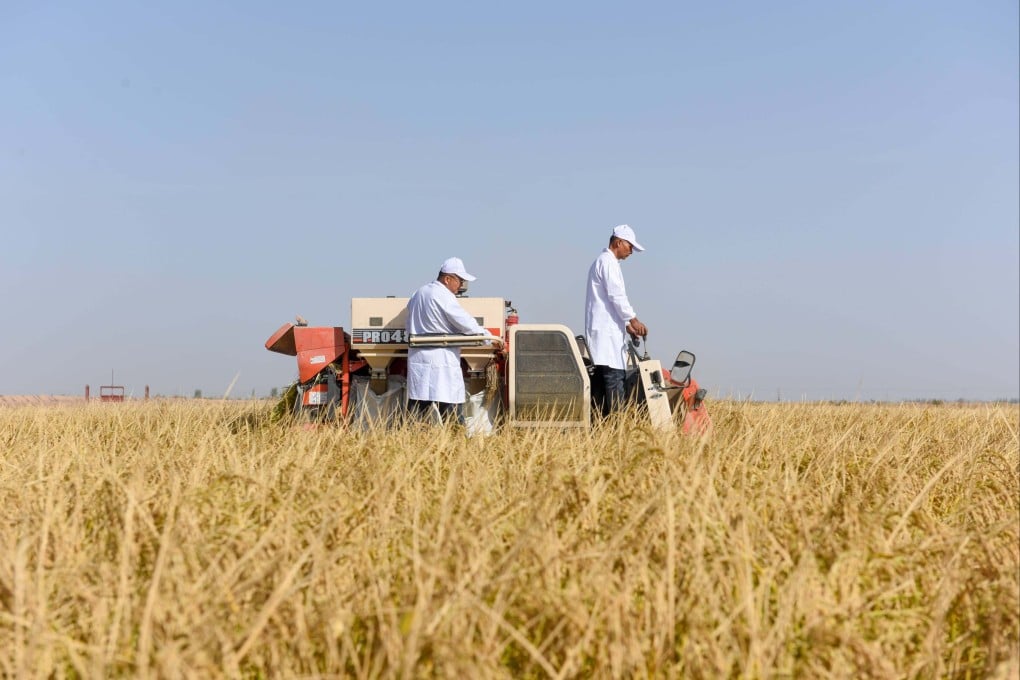Advertisement
Chinese scientists invent method to transform salty soil into fertile farmland as Beijing pushes food security
- Researchers treat wasteland with crop stalks and plastic covering, reducing salt content by 36 per cent and increasing crop yields by almost a third
- China ranks third among countries with the most saline-alkaline land, but about a third of it has potential for use with technology and better farming
Reading Time:3 minutes
Why you can trust SCMP
17

In the vast wasteland of Wuyuan county in northern China’s Inner Mongolia autonomous region, soil scientist Li Yuyi and his colleagues have found a way to turn huge swathes of saline-alkaline land into fertile fields.
Saline-alkaline land contains an excess of both soluble salts and exchangeable sodium, making it more difficult to farm.
Soil salinisation can occur naturally – for example, in deserts due to water scarcity and intense evaporation – or as a result of human activities, such as poor water management.
Farmers in Wuyuan overirrigate their farmland with water from the nearby Yellow River throughout the year, causing the water table to rise and salts in the soil to migrate upwards.
The arid climate means the salts are not diluted by rain, so the soil gradually builds up a thick layer of salt.
Li, a researcher at the Chinese Academy of Agricultural Sciences, and his team have come up with an innovative solution to address the poor soil quality. They took crop stalks measuring about 5cm to 15cm (two to six inches) in length and laid them flat under the soil at a depth of 30cm to 40cm, which prevents the salt from rising to the surface. They also covered the ground with a layer to plastic to help retain soil moisture.
Advertisement